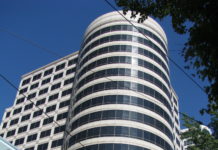Photo credit: DiasporaEngager (www.DiasporaEngager.com).
[Addis Ababa, 18 February] – African Heads of State and Government and Heads of African Multilateral financial institutions came together on February 17 to accelerate action on establishing African Union Financial Institutions (AUFI), including the African Central Bank, the African Monetary Fund, the African Investment Bank, and the Pan-African Stock Exchange, and to launch the Alliance of African Multilateral Financial Institutions (AAMFI) – also known as the Africa Club. These actions are expected to strengthen Africa’s financial architecture and put Africa in a stronger position in the global financial architecture.
During Saturday’s dialogue, convened by His Excellency Nana Akufo-Addo during the 37th Ordinary Session of the Assembly of the African Union, leaders discussed Africa’s agenda for global financial architecture reform, and how this agenda can be bolstered and informed by a strong coalition of African economic policy institutes, think tanks, and development institutions. African leaders and institutions have prioritized global reforms on debt architecture, concessional finance, SDR rechanneling, increased voice and power in decision making, and charting a green industrialization and growth path for the continent.
We are all in agreement that the way the global financial architecture works at the moment does not work in our favor. There is a need to make some fundamental systemic reforms,” said His Excellency Nana Akufo-Addo, the President of the Republic of Ghana and the African Union Champion for African Union Financial Institutions. “Making the reforms also requires that we take some steps that will assist us to have a greater impact in the way in which our economies are financed. If we can increase the financial power of our own institutions, we are in a better place to finance our development.”
“There was a time when a conversation about the Global Financial Architecture looked like it was an us vs. them debate. I’m very happy that today every capital, north and south, has agreed that there is something fundamentally wrong; recognition that the problem exists is half the solution,” said His Excellency Dr. William Samoei Ruto, President of the Republic of Kenya. “We decided in Nairobi that we are not going to take the corner of the victim and to try and point fingers and play the blame game, we are going to do something about it and be part of the solution.”
“The international institutions, our African institutions, and the new institutions we create must not forget certain basics,” said His Excellency Mr. Hakainde Hichilema, President of the Republic of Zambia. “When we’ve done these things, we will grow our economies, we will create jobs for our youthful population, we will create more business opportunities with our own African businesses—and then we can provide, sustainably, more social support for the weak, the sick, the old, the retired, and the young, in terms of education for our population.”
“The strengthening of our own financial landscape that can accompany the African Union as we claim our rightful place in the global arena cannot be overemphasized,” said H.E. Dr Monique Nsanzabaganwa, Deputy Chairperson of the African Union Commission. “African Union Financial Institutions – African Central Bank, African Investment Bank, African Monetary Fund, and the Pan-African Stock Exchange – have the potential to foster inclusive growth and sustainable development of the continent.”
Alliance of African Multilateral Financial Institutions – The Africa Club
The Alliance will be a strategic platform for coordination, engagement and advocacy to improve Africa’s power in the global financial system. It comprises the African Export Import Bank (Afreximbank), Trade and Development Bank (TDB), Africa Finance Corporation (AFC), African Reinsurance Corporation (Africa Re), African Trade and Investment Development Insurance (ATIDI), Shelter Afrique Development Bank (SHAFDB), and ZEP – RE (PTA Reinsurance Co.), all institutions established under treaty agreements by African states. AAMFI seeks to address the specific needs of African sovereigns and facilitate their access to essential financing mechanisms as Africa embarks on a journey towards prosperity and self-sufficiency. Leveraging the expertise and resources of its member institutions, AAMFI is poised to catalyze growth across various sectors, including infrastructure, trade, and investment and to redefine the continent’s financial landscape, ushering in a new era of inclusive and sustainable development.
“African countries have shown resolve to shape our collective financial destiny,” said Prof. Benedict O. Oramah, Chair of the Governing Council of the Alliance of African Multilateral Financial Institutions, or Africa Club. “The Alliance’s formation underscores the continent’s commitment to self-reliance and sustainable economic development, leveraging home grown solutions for the continent’s development. The Alliance will stand as a staunch advocate for Africa’s interest in global finance forums, championing equitable treatment and fair representation for the continent.
The event was co-organized by the African Union Commission, the UN Economic Commission for Africa, the African Center for Economic Transformation, and African Multilateral Financial Institutions.
“We are at a defining moment in terms of the ability to reshape the global financial architecture,” said Dr. Hanan Morsy, Deputy Executive Secretary and Chief Economist at the United Nations Economic Commission for Africa, during her presentation. “With the African Union’s new seat at the G20, we have an opportunity to move from being rule takers to rule makers.”
“We have well-established and well-respected African multilateral financial institutions that have been working for and with us in good times and bad; these institutions must be an integral part of our discourse on the global financial architecture,” said Mavis Owusu-Gyamfi, Executive Vice President of the African Center for Economic Transformation, during her remarks. “As African Policy institutes, we stand ready to work with our Heads of State and Financial Institutions to create a new trajectory for how we engage with the world.”
Africa’s Agenda for Global Financial Architecture Reform: Maura K. Leary | Director of Communications | African Center for Economic Transformation | mleary@acetforafrica.org
General inquiries: Ms. Doreen Apollos | Directorate of Information and Communication| African Union Commission | E-mail ApollosD@africa-union.org
Source of original article: ACET (acetforafrica.org).
The content of this article does not necessarily reflect the views or opinion of Global Diaspora News (www.GlobalDiasporaNews.com).
To submit your press release: (https://www.GlobalDiasporaNews.com/pr).
To advertise on Global Diaspora News: (www.GlobalDiasporaNews.com/ads).
Sign up to Global Diaspora News newsletter (https://www.GlobalDiasporaNews.com/newsletter/) to start receiving updates and opportunities directly in your email inbox for free.
































